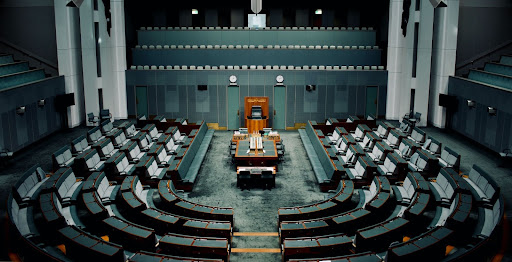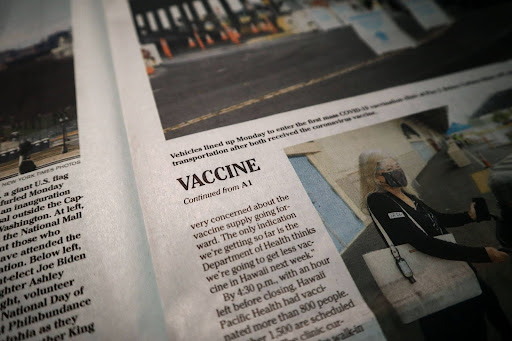
The U.S. Supreme Court has issued two much awaited rulings. One of the rulings blocks the Biden administration’s COVID vaccine mandate for large employers. The Supreme Court is allowing a separate ruling for health care workers, when their facilities receive federal funding. 208 million Americans, or 62.7% of the population, are fully vaccinated, according to the federal Centers for Disease Control and Prevention. The courthouse remains closed to the public. Lawyers and reporters are asked for negative test results before being allowed inside the courtroom for arguments, though vaccinations are not required. The justices heard arguments last week. Their questions then hinted at the split verdict issued Thursday.
Supreme Court Ruling for Large Employers
The Biden administration’s large employer COVID vaccine mandate was announced in early November, with an original effective date of January 4. The COVID vaccine mandate targeted over 84 million U.S. workers, roughly half of the U.S. workforce. The COVID vaccine mandate would have imposed penalties on U.S. employers with 100 or more workers that failed to ensure all of their employees, aside from those who qualified for an exemption, were fully vaccinated, or tested for COVID regularly. Employers could choose to offer a testing option, without having to pay for tests.

The Supreme Court ruling for large employers came in at a 6-3 decision to block the COVID vaccine mandate, which would have been issued by the Occupational Safety and Health Administration (OSHA). According to the majority opinion, the COVID vaccine mandate would be a first of its kind for OSHA. Congress has rolled out many “first of their kind” legislations during the COVID pandemic, but they refuse to pass legislation like OSHA suggests here. The OSHA regulation had initially been blocked by a federal appeals court in New Orleans, then allowed to take effect by a federal appellate panel in Cincinnati. Both had been challenged by Republican-led states.
In addition, business groups attacked the OSHA emergency regulation as too expensive and likely to cause workers to leave their jobs at a time when finding new employees is already difficult. The National Retail Federation, the nation’s largest retail trade group, called the most recent Supreme Court’s decision “a significant victory for employers.”
Liberal Justices Dissent Workplace Ruling
In dissent, the Supreme Court’s three liberal justices argued the Supreme Court was overreaching by substituting its judgment for that of health experts. “Acting outside of its competence and without legal basis, the Court displaces the judgments of the Government officials given the responsibility to respond to workplace health emergencies,” Justices Stephen Breyer, Elena Kagan and Sonia Sotomayor wrote in a joint dissent. President Joe Biden said he was “disappointed that the Supreme Court has chosen to block common-sense life-saving requirements for employees at large businesses that were grounded squarely in both science and the law.”

Supreme Court’s Ruling for Healthcare Workers
The administration’s health care worker COVID vaccine mandate applies to facilities that receive Medicare or Medicaid funds, requiring them to maintain a fully vaccinated workforce, with no testing alternative. The COVID vaccine mandate for health workers applies to more than I10.4 million workers at 76,000 health care facilities as well as home health care providers. The COVID vaccine mandate is administered by Health and Human Services’ Centers for Medicare & Medicaid Services.
The Supreme Court ruled 5-4 in favor of the rule administered by the Department of Health and Human Services. Chief Justice John Roberts and Justice Brett Kavanaugh joined the liberal justices to form a majority. “Both Medicare and Medicaid are administered by the Secretary of Health and Human Services, who has general statutory authority to promulgate regulations ‘as may be necessary to the efficient administration of the functions with which he is charged.’ One such function… Perhaps the most basic, given the Department’s core mission… is to ensure that the health care providers who care for Medicare and Medicaid patients protect their patients’ health and safety,” the majority stated. The Supreme Court’s decision allows the Biden administration to enforce COVID vaccination requirements on covered health care facilities, with certain exceptions to accommodate workers who decline COVID vaccinations on medical or religious grounds. The rulings take effect immediately and will remain in place until legal challenges over their constitutionality are resolved.
Justice Clarence Thomas wrote in dissent that the issue was whether the administration has the authority “to force healthcare workers, by coercing their employers, to undergo a medical procedure they do not want and cannot undo.” He said the administration hadn’t shown convincingly that Congress gave that authority. Justices Samuel Alito, Neil Gorsuch and Amy Coney Barrett signed onto Thomas’ opinion. Alito wrote a separate dissent that the other three conservatives joined as well. America’s feelings are obviously all over the board with this topic. Are you vaccinated? Has your employer required you to get vaccinated? If they did, would you find a new job or get vaccinated? What do vaccination numbers have to do with the labor shortage our country is facing?
Written by: Erinn Malloy

